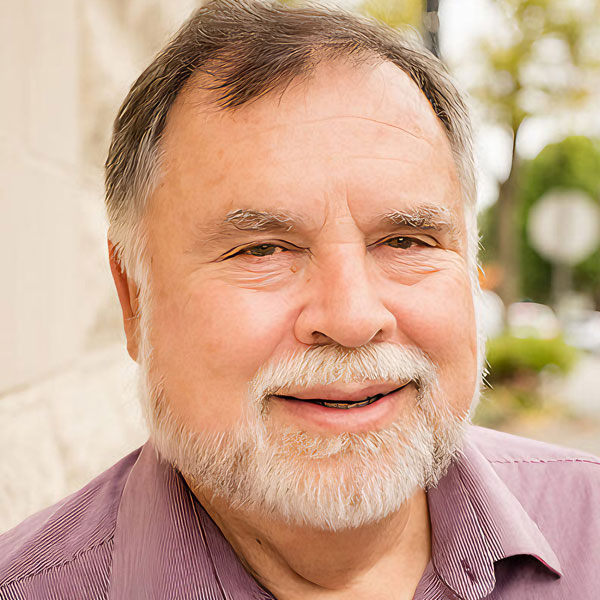Sometimes it takes an outsider viewing your insides to help you be the best you can be. – Mike Holmes
 “Welcome, come on in, and get to know me better,” says the ghost of Christmas present, expressing a basic human need. I believe all humans need others to enter their lives and know and be known. The evidence seems to be everywhere – human beings have always lived in groups. We all need persistent relationship, a deep sense of purpose, and positive reciprocal interpersonal bonds.
“Welcome, come on in, and get to know me better,” says the ghost of Christmas present, expressing a basic human need. I believe all humans need others to enter their lives and know and be known. The evidence seems to be everywhere – human beings have always lived in groups. We all need persistent relationship, a deep sense of purpose, and positive reciprocal interpersonal bonds.
If most of our interpersonal connections are derogatory the result will be that we gain a negative self-image and our attachments become dismissive and fearful-avoidant.
To put it in functional contemporary terms, in recent years much of the United States has rejected many larger gatherings in the name of stopping the spread of a virus. The result has been that people feel isolated and that they’re not sharing in larger and more vital purposes. The pervasive message that humans are parasites and destroying the planet has harmed interpersonal connections. People in general feel isolated and rejected.
As a therapist, I often encourage individuals to become more involved in groups that share meaning and purpose. The social nature of such groups supports individuals and lessens depression and hopelessness. People are better together. The process of constructing a positive self-image can be helped by appraisal through the eyes of others who approve and encourage us, or correct what they see as error.
If we do not have enough interpersonal connection, we will not get a positive sense of who we are as good and meaningful, or we will not receive enough corrective connection and end up believing we are the ultimate authority. This is also known as humanism, where humans become the final measuring stick, producing a distorted picture of reality.
Individuals develop what in psychology is referred to as a schema. A schema is a constructed belief about oneself based on one’s experience and becomes a working model for one’s individual beliefs about the self and relationships. They tend to be directive.
If we think of people as being negative and demanding we will treat them that way and they will begin to reflect those attitudes because of how we treat them. In a sense, it becomes a self-fulfilling prophecy and can become difficult to change
Therefore, just as you have received Christ Jesus as Lord, continue to walk in Him, 7rooted and built up in Him, established in the faith as you were taught, and overflowing with thankfulness. 8See to it that no one takes you captive through philosophy and empty deception, which are based on human tradition and the spiritual forces of the world rather than on Christ. – Colossians 2:6
 In college, I wanted to see people change into people who knew and loved Jesus. Why? Because when I was younger, God entered my life and made significant differences. The Church I grew up in was loving and invested in relationships. I am not sure that they had perfect doctrine, but they cared and helped each new believer grow to live out the love God has for each person.
In college, I wanted to see people change into people who knew and loved Jesus. Why? Because when I was younger, God entered my life and made significant differences. The Church I grew up in was loving and invested in relationships. I am not sure that they had perfect doctrine, but they cared and helped each new believer grow to live out the love God has for each person.
They were not perfect. We would say things like if you find the perfect church, don’t join it you will ruin it. But I owe a debt of gratitude to those loving people at First Baptist Church of El Segundo, California. The love they shared and the faith they exhibited have set a quality of life for me and my family and I would not trade.
At Westmont College, I studied psychology because I could see the value of each person and knew that each person mattered to God. I had several sociologists friends who would argue that group thinking, and philosophy were more important than individuals. I still disagree with that and hold that individuals make up a group and that they shape the group’s understanding.
But I can see the value of working as a group because it can be an effective means of “correction and training in righteousness so we can be thoroughly furnished unto every good work.” In other words, groups help us and encourage us to be better. So, I advocate for group therapy, but groups need to have a base of belief and authority to be useful.
Not forsaking the assembling of ourselves together, as the manner of some is; but exhorting one another: and so much the more, as ye see the day approaching. – Hebrews 10:25
And he gave the apostles, the prophets, the evangelists, the shepherds and teachers, to equip the saints for the work of ministry, for building up the body of Christ, until we all attain to the unity of the faith and of the knowledge of the Son of God, to mature manhood, to the measure of the stature of the fullness of Christ, so that we may no longer be children, tossed to and fro by the waves and carried about by every wind of doctrine, by human cunning, by craftiness in deceitful schemes.
Rather, speaking the truth in love, we are to grow up in every way into him who is the head, into Christ, from whom the whole body, joined and held together by every joint with which it is equipped, when each part is working properly, makes the body grow so that it builds itself up in love. – Ephesians 4:11-16
 Later I attended seminary and began training to be a spiritual leader of groups that were called churches. No doubt you have seen this kind of place, We generally refer to a church as a building, which probably has a steeple, and holds weekly meetings.
Later I attended seminary and began training to be a spiritual leader of groups that were called churches. No doubt you have seen this kind of place, We generally refer to a church as a building, which probably has a steeple, and holds weekly meetings.
To me, a church was a gathering of people who shared something in common: a belief in Jesus as God and Savior and a community that is supportive and loving. All this focused on a shared understanding that the Bible and the community were intimately connected to God.
In a way, church was a form of large group therapy. We shared and grew and reflected similar attitudes and values. I still think that going to church and getting involved in fellowship is imperative to a happy and healthy life. It is part of God’s design for people.
Individual therapy is a small group – a close interpersonal relationship focused on emotional corrections and change to bring a healthy outcome. The advantage of individual therapy is that the correction and processes are directed at one person.
There is no competition for attention. Group work can cause some people to shrink back and not put what they feel out there. Individual therapy can help a lot, but it does lack the dynamic of having a larger community that supports and strengthens individual change. This dynamic is the difference between corporate worship and individual discipleship.
In short, I have done both in my work as a pastor and as a therapist. I find that group therapy can be a positive experience, but I know that many people need to have individual attention. So, if you are in therapy, I advocate for both. If you are in a church, you also need both worship and discipleship.
 The basic principles are:
The basic principles are:
- The importance of emotional experience in therapy.
- Discovery through reality testing of the inappropriateness of his or her interpersonal reactions is crucial to group therapy and is transformative in church.
- In individual therapy, this is still possible but may be more possible in the group setting which offers more opportunities for the generation of corrective emotional experiences.
- In the individual setting the corrective emotional experience is harder to come by because the client-therapist relationship is more insulated.
What is needed in therapy, or the Church?
- A safe place to express emotion.
- A supportive presence to allow risk-taking.
- Reality testing.
- Validation by the members of the group.
- Interpersonal feedback that corrects inappropriate behaviors and feelings of an interpersonal nature.
- For therapy or church to work, we need to facilitate each individual’s ability to interact with others more deeply and honestly.
May God direct us from here to follow him both individually and in our work together.
“Concert”, Courtesy of Vince Fleming, Unsplash.com, CC0 License; “Prayer”, Courtesy of Rosie Fraser, Unsplash.com, CC0 License; “Group Counseling”, Courtesy of Getty Images, Unsplash.com, Unsplash+ License; “Meeting”, Courtesy of Jason Goodman, Unsplash.com, CC0 License






